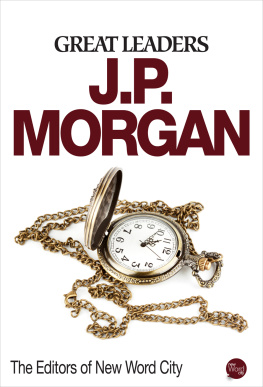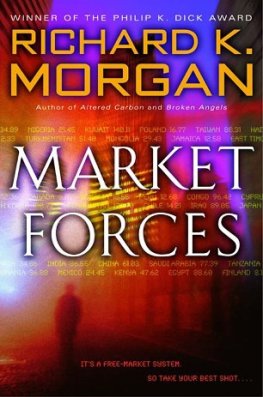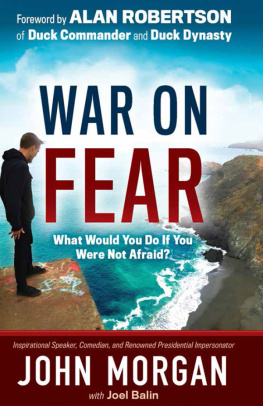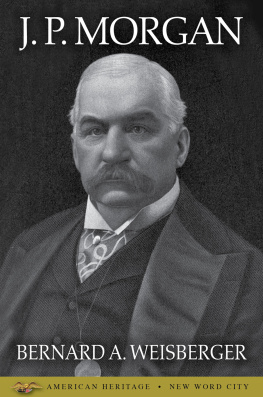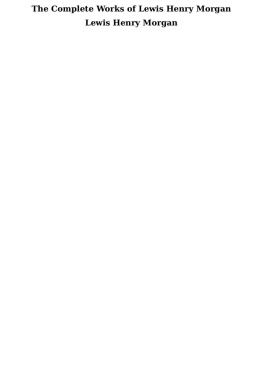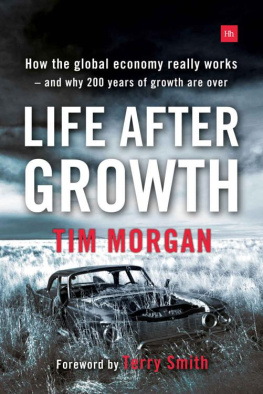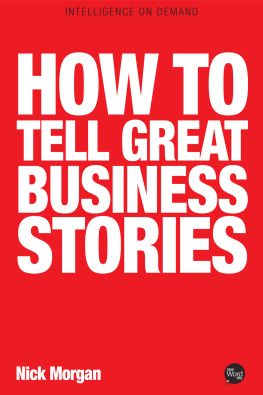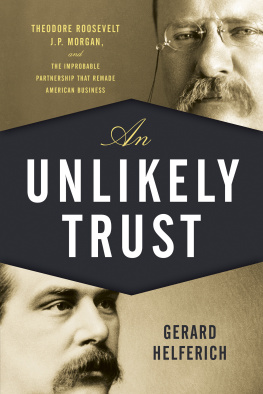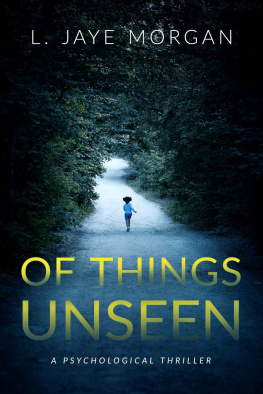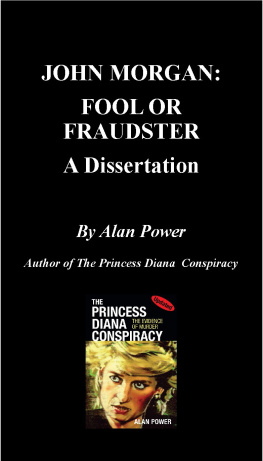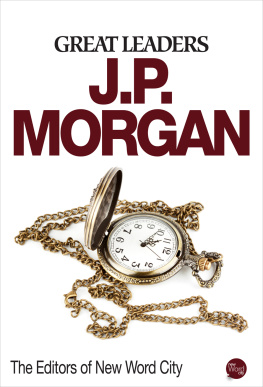Morgan John Pierpont - J.P. Morgan
Here you can read online Morgan John Pierpont - J.P. Morgan full text of the book (entire story) in english for free. Download pdf and epub, get meaning, cover and reviews about this ebook. City: United States, year: 2017;2014, publisher: New Word City, LLC, genre: Science. Description of the work, (preface) as well as reviews are available. Best literature library LitArk.com created for fans of good reading and offers a wide selection of genres:
Romance novel
Science fiction
Adventure
Detective
Science
History
Home and family
Prose
Art
Politics
Computer
Non-fiction
Religion
Business
Children
Humor
Choose a favorite category and find really read worthwhile books. Enjoy immersion in the world of imagination, feel the emotions of the characters or learn something new for yourself, make an fascinating discovery.
- Book:J.P. Morgan
- Author:
- Publisher:New Word City, LLC
- Genre:
- Year:2017;2014
- City:United States
- Rating:4 / 5
- Favourites:Add to favourites
- Your mark:
- 80
- 1
- 2
- 3
- 4
- 5
J.P. Morgan: summary, description and annotation
We offer to read an annotation, description, summary or preface (depends on what the author of the book "J.P. Morgan" wrote himself). If you haven't found the necessary information about the book — write in the comments, we will try to find it.
J.P. Morgan — read online for free the complete book (whole text) full work
Below is the text of the book, divided by pages. System saving the place of the last page read, allows you to conveniently read the book "J.P. Morgan" online for free, without having to search again every time where you left off. Put a bookmark, and you can go to the page where you finished reading at any time.
Font size:
Interval:
Bookmark:
It would be a mistake to think of John Pierpont Morgan as the Ben Bernanke of his day. In truth, Morgan was more powerful than any Federal Reserve chairman, serving as a one-man central bank long before that institutions birth in 1913. And although the financier died that year at age seventy-five, he was indirectly responsible for the Feds creation.
J.P. Morgans inordinate influence in the late-nineteenth and early twentieth century stoked the nations inherent fear of concentrated wealth. It was a mixture of that fear and the recognition that the only man suitable for the role of central banker had lately departed this earth that ultimately led to the establishment of the Federal Reserve System. Henceforth, the government, not Morgan, would regulate the supply of money and credit, ensure the safety and soundness of the system, and step in to defuse financial panics.
It was typical of Pierpont - his preferred name since childhood - to elicit both gratitude and fear from those he rescued. He was the prototype of the top-hatted robber baron whose unfettered power was a threat (the government sued him in 1911 for forming a steel monopoly) but also a boon to Americas fragile economy (crowds parted and cheered as he walked purposefully down Wall Street in October 1907). But in spite of his fame and repeated interventions in times of crisis, the nation never saw the real Morgan.
Lets get to know him.
At his birth in Hartford, Connecticut, in 1837, J.P. Morgans parents, Junius Spencer Morgan and Juliet Pierpont, greeted him with the highest of expectations. He was the first of five children and the only surviving son after his brother died at age twelve. Both of his parents were descended from families that came to the United States before the American Revolution, and the family tree was thick with achievement.
On the Morgan side, young Pierponts grandfather was a founder of the Aetna Insurance Company, while his ancestors on his mothers side included both a founder of Yale University and the spouse of noted theologian Jonathan Edwards. There was also an uncle who embarrassed the family by riding with the Confederate cavalry in the Civil War. But even he scored an accomplishment that guaranteed lasting fame: An amateur songwriter, he penned One Horse Open Sleigh, later renamed Jingle Bells.
Perhaps not so surprising, John Pierpont Morgans birth and childhood seem to have been regarded as little more than necessary stages through which he had to pass to begin fulfilling his fathers grandiose ambitions. It was high praise, indeed, when Morgans grandfather reported that his visiting grandson behaves like a man. The boy was all of two years old at the time.
Junius hoped to construct an empire in the United States on a par with what the Rothschilds had built in Europe, which meant that, his son needed exposure to the world at large. Morgans most frequent childhood exposure, however, was to illness. He was forever battling seizures, sore throats, and headaches. As a teenager, he was beset by aggressive acne - the precursor of a more debilitating and disfiguring skin ailment, rhinophyma, that would afflict him in his fifties and that he would stubbornly refuse to treat. Nearly immobilized by rheumatic fever in 1852, Morgan was shuttled off by his father on a trip all by himself to the Azores. There, he spent nine months convalescing. Upon his return, he resumed his formal education.
Shortly before his illness, Morgan had passed the entrance exam for Bostons English High School, an institution devoted to preparing young men for careers in commerce. Previously, his academic experiences had included the Hartford public schools and the Episcopal Academy in Cheshire, Connecticut, where he boarded. Upon his graduation from English High, Morgan was sent to Europe to study French and perfect his German.
By 1857, having also attained a degree in art history, he was ready to begin work at his fathers office in London. He spent a year there before settling in New York, where he served as the agent for his fathers bank. He subsequently formed J. Pierpont Morgan & Company, which was eventually shortened to J.P. Morgan & Company.
After the American Civil War, the railroads boomed, attracting billions of investment dollars, unscrupulous promoters, corrupt politicians, and, in time, worthless stock. Scandals brought down Jay Cookes Philadelphia firm, one of the biggest underwriters and distributors of railroad securities. The Cooke collapse incited the Panic of 1873, which threatened the viability of Wall Street. A depression ensued, and European investors lost hundreds of millions of dollars.
Without foreign capital, the railroads could not be built. To lure back European financiers, Pierpont Morgan stepped in to provide the necessary guarantees. Selecting railroad properties he deemed worthy, Morgan sold their debt securities to investors abroad with an implicit promise of his personal involvement, or what he thought of as taking moral responsibility. If a company he backed failed, he and his partners seized control and set about to stem the red ink. Thus began a consolidation technique known as Morganization that came to encompass not just railroads but the steel, electric power, and banking industries.
Designed to allay the fears of wary investors, Morgan would take over one troubled business after another within an industry, scrutinizing its operations and finances, and orchestrating massive reorganizations that included rescheduling debt and replacing incompetent managers. The goal was to stabilize the sector to make it an attractive investment again. But while his methods may have been admired as a calming force by investors, critics noted that Morgan was growing wealthier and more powerful with each consolidation.
Morganization eventually led the tycoon to take risks on an unprecedented scale. In February of 1901, he asked Andrew Carnegie to name his price for Carnegie Steel, then the nations largest steel company. During a round of golf, Carnegie came up with a figure that he scrawled on a piece of paper: $480 million. Done, Morgan declared. They later finalized the deal aboard a yacht without lawyers or even a contract.
A possibly apocryphal footnote to the story has Carnegie meeting Morgan some months later on a steamer bound for Europe. The steel magnate proposed that maybe he should have held out for another $100 million. Morgan reportedly responded, without a hint of emotion: If you had, Id have paid it.
Moving fast, Morgan was able to announce in February that he had created the United States Steel Corporation, which became the countrys first billion-dollar business. By way of comparison, the rest of corporate Americas market value at the time amounted to $9 billion. Morgans enthusiasm for scale and the advantages it conferred reshaped the U.S. and eventually the global economy. Its not a coincidence that, during his lifetime, the center of global finance shifted from London to New York, and the United States emerged as the worlds greatest industrial power.
Like many an entrepreneur, J.P. Morgan sometimes stumbled. In 1861, he invested $20,000 to finance the purchase of 5,000 out-of-date, surplus rifles from the Mexican War, which the Army was selling for $3.50 each. The buyers planned to refurbish the rifles and sell them back to the Union Army for $22 apiece. Even though the Army had agreed to the deal, it attracted the attention of a Congressional committee investigating war profiteering. The War Department subsequently refused to pay the agreed-upon sum. Although Morgan had already cashed out of the transaction, the case dragged on until 1867, when the Supreme Court ordered the War Department to pay up.
Chastened by his brush with disaster, Morgan looked for other ways to profit from booming wartime demand. He dutifully informed his father when he saw tremendous traffic boosting the earnings of the railroads that carried troops and supplies. But knowing his fathers cautious nature, he did not tell him that he and a partner had purchased $2 million worth of gold, borrowing against it and creating a temporary gold shortage in New York. Their plan was to sell it for a healthy profit.
Next pageFont size:
Interval:
Bookmark:
Similar books «J.P. Morgan»
Look at similar books to J.P. Morgan. We have selected literature similar in name and meaning in the hope of providing readers with more options to find new, interesting, not yet read works.
Discussion, reviews of the book J.P. Morgan and just readers' own opinions. Leave your comments, write what you think about the work, its meaning or the main characters. Specify what exactly you liked and what you didn't like, and why you think so.

